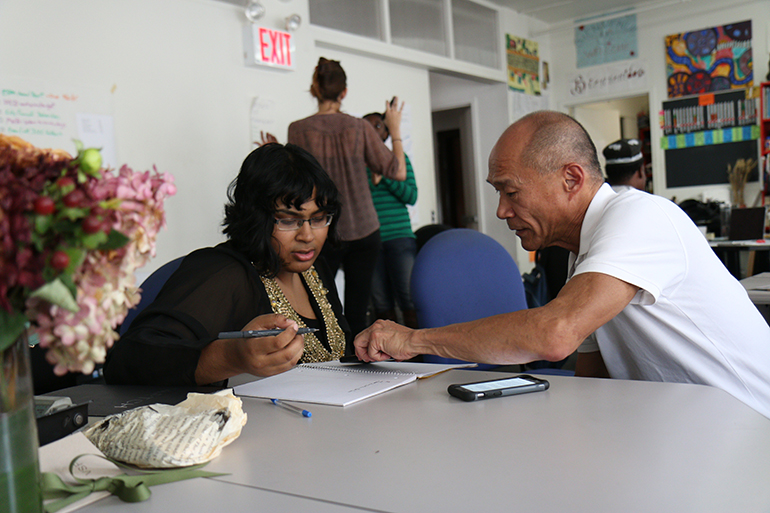For some of us, developing a meaningful life can be hard. But from helping others to finding a sense of purpose, these ten scientifically-backed tips from Ed Gould can help you discover how to live a meaningful life and find greater happiness.
A meaningful life is something of a subjective matter, you might well think. What is meaningful to one person may, of course, have little meaning for another. However, there are certain aspects of fulfillment and happiness that all of us can ascribe meaning to. As such, there have been a number of scientific studies that have been carried out around the world that have delved into the subject.
If you want to know what research programmes and studies have to offer in the search for a meaningful life, then read on. You may be surprised at just how many insights science has to offer on the subject.
1. Listening to music can make you kinder
Music has long been understood to be a form of communication that gets into our souls like no other. And, according to research from Frankfurt's Goethe University, it can even help us to become more helpful and show more kindness to others.
So, how does this relate to living a meaningful life? Well, science has previously shown that being kind to others brings about long-lasting well-being and happiness in humans, increasing purpose. Indeed, even ancient Greek philosopher Aristotle wrote that finding happiness and fulfillment is achieved “by loving rather than in being loved.”
Furthermore, the results from the German 2016 study show that integrating listening to music into a daily routine can improve cognition, especially where creative tasks are concerned. What's more, the greater the level of joy was conveyed in the music, the more the effect of it was noticed.

Sound advice: music makes you more creative and kinder
2. Helping others helps ourselves
Here is further evidence that a meaningful life spent caring for and helping others can be of benefit to us. A 2016 paper published by researchers at Columbia University and the Massachusetts Institute of Technology discovered that people who offer care and assistance to others will be better equipped to deal with their own problems.
Researchers carried out a three-week study of an online platform that provides training and practice in the social regulation of emotion. Their results suggested that our mood changes when we help others, leading to a greater sense of worth that can assist with coping strategies for life's daily struggles. Moreover, the study showed that participants who engaged more by helping others showed greater decreases in depression, mediated by increased use of reappraisal in daily life.
3. You can make your workplace a more positive place
Although work may feel like it's not something we have much control over, scientists have shown that acting in a kind way at work can, in fact, lead to a shift in behaviour among colleagues. A study from the University of California – co-anchored by happiness expert Sonja Lyubomirsky – demonstrated that kind behaviour was both beneficial and contagious in the workplace.
The 2017 study, published in the journal Emotion, focused on a workplace in Spain. It examined the effects of practising, receiving and observing everyday prosociality — activity that benefits others. Just over 100 employees were randomly assigned to be givers, receivers or controls.
“The question of how to living a meaningful life has puzzled generations for centuries. Science shows that discovering meaning and fulfillment is a key ingredient in living a happy life.”
Over a period of four weeks the givers practised five acts of kindness for a set list of receivers. The study showed that both receivers and givers mutually benefited from boosted well-being in both the short-term and the long-term. In fact, receivers became happier after two months, while givers became less depressed and more satisfied with their lives and jobs.
Furthermore, the kind acts inspired of givers also encouraged colleagues to act: receivers paid their acts of kindness forward with almost 300 per cent more prosocial behaviors compared to the control colleagues.
4. Find a sense of purpose, no matter your age
There have been several scientific studies into the role a sense of purpose has in developing a meaningful life. One 2016 study entitled Purpose in life and cognitive functioning in adulthood from Carleton University, Canada and West Virginia University, USA, found that older people were just as likely to need a self-defined purpose in their lives in order to combat a number of issues, such as cognitive impairment. Essentially, true sense of purpose can reduce the risks of conditions like dementia in older people.
RELATED: How to find your ikigai
5. Mindfulness leads to better parenting
For some, it's their role as a parent that shows them how to live a meaningful life. And although there are many ways to try and bring up happy children, science has shown that mindfulness leads to improved parenting techniques. According to a study undertaken by the University of Vermont, parents who practise mindfulness are generally more positive and suffer less anxiety in their interactions with their children.

We're not kidding: parenting can bring meaning to life
6. General health isn't only controlled by genes
Although certain health conditions are caused by genes and we may feel there is little control we have over them as individuals, scientists are now suggesting we can alter things ourselves. Certain genes have been associated with negative mindsets, for example, but meditation can alter them – or at least their effect.
Researchers at the University of Wisconsin and other European institutions found that genes that cause bodily problems when we feel stressed are more likely to be suppressed in people who meditate. Discover which type of meditation may suit you best.
7. Time is more important than money
All that focus on your bank balance and earning more can improve your material wealth, but does it have anything to say about leading a more meaningful life? Well, according to a scientific paper published in 2016, people who value their time over money are simply happier. Ultimately, science has revealed that our time is the most valuable resource we have when people respond honestly to questions about their lifestyles.
“Our mood changes when we help others, leading to a greater sense of worth that can assist with coping strategies for life's daily struggles.”
Sometimes you can use money to help you buy more time, for example, hiring a cleaner if you don't want to tackle the house chores, or a babysitter if you and your partner need some quality time together. This is one example in how you can live a meaningful life by using money in a different way.
RELATED: Money can't buy you happiness (except when you spend it like this!)
8. A happy life and a meaningful one may be different
We may assume that living a meaningful life will automatically lead to greater happiness, but science has shown that, in fact, the two are not intrinsically linked. Put another way, being happy does not necessarily lead to a greater sense of meaning in your life.
The question of how to living a meaningful life has puzzled generations for centuries. Science shows that discovering meaning and fulfillment is a key ingredient in living a happy life
According to The Journal of Positive Psychology, there is a correlation between a meaningful life and a happy one, but the two concepts diverge. The pursuit of happiness for its own sake – through hedonism, for example – may not be all its cracked up to be, and will not set you on the path to a meaningful life.
9. Altruism is good for you
You might not intend to derive benefit from an act of altruism or kindness, but scientific research suggests that you will. According to a large study which drew data from around 200,000 people in 136 countries, giving to others, for example, in the form of charitable donations, makes people feel happier about themselves.
RELATED: The power of kindness
The researchers called this pro-social spending and suggested that it has a universal psychological impact no matter which culture was being examined. The work theorised that altruism may, in fact, be a product of evolutionary development among humans who derive longer term benefits from concepts like giving and sharing as a whole.

A helping hand: aiding others can benefit yourself too
10. Put your phone down and interact
We've all been in the company of someone who cannot put their phone down and won't look you in the eye. And now science suggests this practice has a real detrimental effect on social interactions in the here and now. In fact, it can even lead to friendships and relationships breaking down because of the social exclusion that is felt.
Social media may be fine in its proper place, but the latest research suggests access to it should be limited in face-to-face social contexts. Mindful listening is essential if you want to give your full attention to others when you are having a conversation and it makes the other person know you are interested and care. This type of deep listening is an exercise in empathy and self-awareness that can improve the quality and depth of our relationships, therefore helping to boost meaning in our lives.
The takeaway: how to live a meaningful life
The question of how to living a meaningful life has puzzled generations for centuries. Science shows that discovering meaning and fulfillment is a key ingredient in living a happy life. And finding meaning in life seems to be done by doing what you love, helping others through altruism, and staying mindful at all times. ●
happiness.com | The fine art of being: learn, practise, share
Are you a happiness.com member yet? Sign up for free now to:
■ enjoy our happiness magazine with practical life tips
■ share and support others in our happiness forum
■ develop with free online classes in our happiness Academy
Written by Ed Gould
 Ed Gould is a UK-based journalist and practitioner of Reiki.
Ed Gould is a UK-based journalist and practitioner of Reiki.





Join the conversation
You are posting as a guest. If you have an account, sign in now to post with your account.
There are no comments to display.